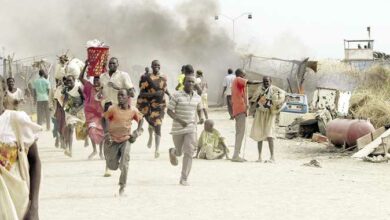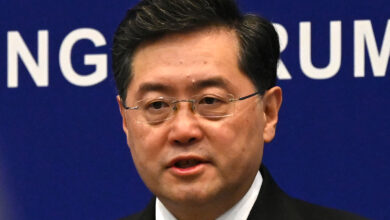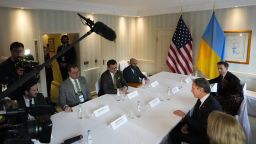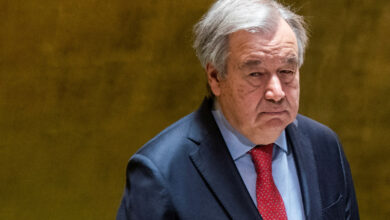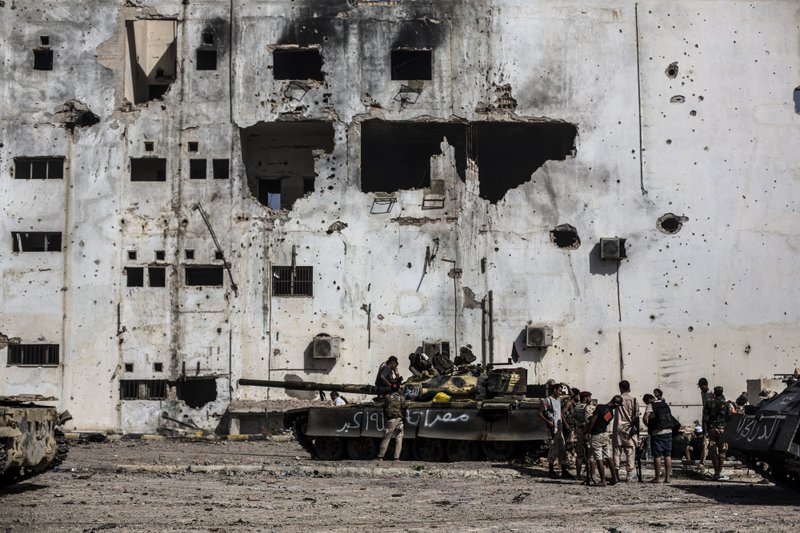
CAIRO (AP) — The head of Libya’s UN-supported government said Wednesday night that he wants to hand over power to a new administration in October, amid peace talks on ending the country’s yearslong conflict.
Fayez Serraj said the UN-brokered talks between the country’s rival factions have led to a “new preparatory phase” to unify Libyan institutions and prepare for parliamentary and presidential elections.
“I announce to everyone my sincere desire to hand over my duties to the next executive authority, no later than the end of next October,” he declared in a televised speech from the capital, Tripoli.
Oil-rich Libya was plunged into chaos when a NATO-backed uprising in 2011 toppled longtime ruler Moammar Gadhafi, who was later killed. The country has since split between rival east- and west-based administrations, each backed by armed groups and foreign governments.
Eastern military commander Khalifa Hifter launched an offensive in April 2019 trying to capture Tripoli from Sarraj’s government. But Hifter’s campaign collapsed in June when militias backing the UN-supported government, with heavy Turkish support, gained the upper hand, driving his forces from the outskirts of the capital and other western towns.
Under heavy international pressure, delegates from rivals camps met earlier this month and agreed on a preliminary deal that aims to guide the country toward elections within 18 months and demilitarize the contested city of Sirte. The city, which is controlled by Hifter, is the gateway to Libya’s major oil fields and export terminals, also held by Hifter.
Talks are expected to resume soon in Geneva.
Sarraj, who arrived in Tripoli on Wednesday after a visit to his close ally Turkey, urged negotiators to quickly name the new administration to “secure a peaceful and smooth transition.”
Last month he called for a cease-fire and the demilitarization of Sirte and Jurfa area. Aguila Saleh, speaker of the rival eastern-based House of Representatives, supported Sarraj’s proposal for demilitarizating Sirte, but he did not mention Jurfa, which includes a vital military airbase held by Hifter. The warring sides have been building up in and around Sirte.
UN Secretary-General Antonio Guterres said at a news conference Wednesday that Libya requires a new political process.
“That political process needs to renew the institutions that exist and, at the same time, to move for elections in an acceptable delay,” he said. “There are signs of hope.”
Guterres said also there are “promising contacts” to agree on a lasting cease-fire rather than the currently existed military standstill.
Sarraj, a 60-year-old former architect, was appointed in 2015 to lead the presidential council, created by a political agreement that was signed by Libya’s factions in Skhirat, Morocco.
That agreement, however, failed in its aim of creating a national government in Tripoli and ending the divide between the rival parliaments, governments and military coalitions in Libya, and the conflict morphed into a bloody proxy war.
Wednesday’s announcement came amid protests over dire living conditions and corruption across the divided country. The demonstrations exposed a rift within the UN-supported government and led to a rival administration in the east to resign.
Hifter, who controls Libya’s east and south, is supported by the United Arab Emirates, Russia, Jordan and Egypt. The Tripoli forces that hold the country’s west are supported by the wealthy Gulf state of Qatar and by Turkey, a bitter rival of Egypt and the UAE in a broader regional struggle over political Islam.
___
Associated Press writer Edith M. Lederer at the United Nations contributed to this report.

